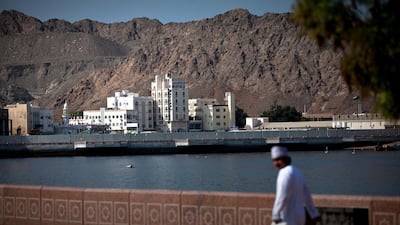Sultan Haitham bin Tariq’s cabinet reshuffle has been welcomed by Omanis as analysts say it will help to boost the country out of its current economic downturn.
On Tuesday Sultan Haithaim downsized the government from 26 ministries to just 19 in a bid to save costs and cut down bureaucracy, analysts say.
“It is a very smart downsizing...the reshuffling also removed duplication of offices that compete with each other which really caused confusion in their operations,” Khalil Al Saadi, an independent political analyst, said.
The Sultan also devolved his powers by giving up the roles of Minister of Finance and Minister of Foreign Affairs, titles he previously held. But he retained the title of the Prime Minister with three deputy prime ministers under him.
“This clearly shows the Sultan wants more power for the people by decentralising his own powers to make sure Omanis have a better say in the running of their government,” Said Al-Jabri, 44, a civil servant, said.
The move was a hit with the average Omani, said Rumaitha Al Busaidi, an Atlantic Council Fellow specialising in Oman.
"It feels like it's an early national day celebration, and if it weren't for Covid-19 you would probably see people fill the streets, honking in their cars and waving the Omani flag up high," she said.
The Sultan’s new appointments, both veterans in their portfolios, were also popular choices. Finance minister Sultan Al Habsi served over 25 years in the finance ministry and the central bank. New foreign minister Sayyid Badr bin Hamad bin Hamood Al Busaidi, a 60-year old Oxford graduate who served in the ministry since 1988, is seen as pragmatic and a man who will continue Oman’s neutrality in the region.
“He is well liked by both the western leaders and their foe across the Strait of Hormuz. I think it is a strategic appointment by the Sultan to have a new foreign minister who will continue to follow the foreign policies established by the late Sultan Qaboos bin Said,” Gharib Al Fardan, another political analyst based in Muscat, said.
Sultan Qaboos, who ruled Oman for 50 years, died in January this year. He established the country’s role of neutrality early on in his reign and negotiated truces on a number of occasions between the United States and Iran.
Omanis also say that new cabinet is well experienced to overcome the economic downturn that the country is currently experiencing from lower oil prices.
“We can see that all the new ministers have been very carefully chosen from their past experience in different areas of the economy to overcome the financial challenges Oman is facing now,” said Yusuf Al-Jardani, 36, a businessman in Muscat.
“We can only look forward to a brighter future in job creation and more financial liquidity in the market.”
Oman this month is sounding out financial institutions for a $2 billion loan to invest in its free trade zones located in Sohar in the north, Salalah in the south and Duqm in the centre of Oman. To send out a message that the economy is a focal point of his premiership, the Sultan created a new ministry of economy. Previously, the economy was under the finance ministry.
“The creation of the ministry of economy is a sign that the Sultan wants to revive the economy and get it back on track,” Mr Jardani said.
The cabinet is also seeing more women than ever before, and this is not by accident, said Rumaitha Al Busaidi.
The Sultan “believes in Omani women and wants to encourage more to work side by side with their male counterparts in various fields of service to their country and society. This decision also plays as a nudge for more women to step into the decision-making table and be heard.”

